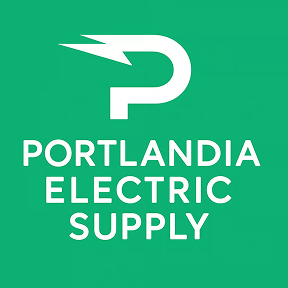
Best Solar Inverter 2025: Top Solar Inverters for Use in 2025
Share
As we advance towards a future powered by renewable energy, solar technology continues to be at the forefront. In 2025, choosing the best solar inverter for your needs will be crucial in optimizing solar energy systems. Solar inverters play a pivotal role in converting the direct current (DC) generated by solar panels into alternating current (AC) that can be used in homes and businesses. With innovations in solar technology, the solar inverter market is expanding, offering a variety of inverter options tailored for different solar setups. This guide aims to help you navigate the evolving landscape of solar inverters, ensuring you select the best inverter for your solar installation in 2025.
Understanding Best Solar Inverters
What is a Solar Inverter?
A solar inverter is a key component of any solar power system, responsible for converting the DC electricity produced by solar panels into AC electricity, which powers homes and businesses. This conversion is essential because most electrical appliances and the grid operate on AC. Solar inverters also perform other critical functions, such as maximizing solar power output, ensuring safety during solar installation, and monitoring solar energy production. The best solar inverter models in 2025 will incorporate advanced inverter technology to enhance efficiency and reliability, making them indispensable in residential solar setups and large-scale solar installations.
The Role of Solar Inverters in Solar Systems
Solar inverters serve as the brain of a solar power system, managing and optimizing the performance of the solar array. They ensure that solar panels and batteries work in harmony to deliver consistent solar energy. Inverters offer crucial data on energy production and system performance, helping users monitor the efficiency of their solar setup. In 2025, the role of solar inverters will expand further with innovations in hybrid inverter technology, which integrates solar energy with other power sources, and off-grid inverter options that enable energy independence. Understanding the functions of various inverter types is essential when choosing the best solar inverter for your unique energy needs.
Types of Solar Inverters
The types of solar inverters available in the market cater to different solar power system requirements. Each type offers unique benefits depending on the scale and design of the solar installation. Here are some of the main types:
- String Inverters: Commonly used in residential solar systems due to their cost-effectiveness.
- Central Inverters: Suited for large-scale solar setups.
- Microinverters: Ideal for installations with multiple solar panels, allowing for individual solar panel optimization.
For those looking for versatility, hybrid inverters combine solar power with battery storage, offering a seamless transition between grid-tied and off-grid solar systems. As we approach 2025, choosing a solar inverter will involve evaluating these types to find the best fit for your energy goals.
Choosing the Best Solar Inverter for Your Home
Factors to Consider When Choosing a Solar Inverter
Choosing the best solar inverter for your home requires a careful evaluation of several key factors. One of the foremost considerations is the type of solar inverter that aligns with your solar power system's design and needs. The capacity of your solar array and the expected energy consumption are crucial in determining whether a string inverter, hybrid inverter, or off-grid inverter is appropriate. Additionally, the efficiency ratings of the inverter models should be scrutinized to ensure maximum conversion of solar energy to usable electricity. Another critical factor is the inverter's compatibility with solar batteries if energy storage is a part of your solar setup. Furthermore, attention should be given to the warranty and service support offered by the inverter manufacturer, as these aspects can significantly impact the long-term performance and reliability of your solar installation.
Comparing Different Inverter Brands
When comparing different inverter brands, it is important to assess both the reputation and the technological innovations they offer. Leading inverter manufacturers in the solar inverter market provide a range of inverter options with varying features tailored for specific solar installations. Some brands are renowned for their advanced inverter technology and high-efficiency inverter models, which can be crucial for optimizing residential solar systems. It is also beneficial to consider inverter brands that offer robust customer support and warranties, as these can provide peace of mind and assurance of quality. Additionally, examining user reviews and expert ratings can help identify the top 10 solar inverter brands that consistently deliver performance and reliability. Ultimately, finding the best solar inverter brand involves balancing cost, efficiency, and long-term support to ensure the best return on your solar investment.
Best Practices for Solar System Installation
Installing solar panels and choosing the best solar inverter are crucial steps in setting up an efficient solar energy system. Best practices for solar installation involve conducting a thorough site assessment to determine the optimal placement of solar panels, ensuring maximum exposure to sunlight. Collaborating with a certified solar installer can make a significant difference in the quality of the installation, as they bring expertise in configuring solar setup and ensuring that all components, including the solar inverter, function harmoniously. Proper sizing of the inverter to match the solar panel system's output is essential to prevent energy losses and improve overall system efficiency. Moreover, considering future scalability, such as the addition of solar batteries, can enhance the flexibility of your solar power system. Adhering to these best practices not only ensures a seamless installation but also maximizes the long-term benefits of your solar investment.
Top Solar Inverter Brands for 2025
Leading Solar Inverter Manufacturers
As we approach 2025, the solar inverter market is witnessing a surge in innovation and competition. Leading solar inverter manufacturers are at the forefront of this transformation, driving advancements in inverter technology that enhance the efficiency and reliability of solar power systems. These manufacturers are known for producing high-quality inverters with robust performance characteristics, ensuring seamless integration with solar panels and battery systems. With a focus on sustainability and energy optimization, these companies are pivotal in the evolution of solar technology. They offer a diverse range of inverter options, including:
- String inverters suitable for residential solar setups
- Central inverters designed for large-scale installations
By setting industry standards and pushing technological boundaries, these leading manufacturers are enabling consumers to choose the best solar inverter tailored to their energy needs.
Top 10 Solar Inverter Brands
Identifying the top 10 solar inverter brands in 2025 requires careful consideration of factors such as innovation, efficiency, and customer satisfaction. These brands distinguish themselves by offering a comprehensive selection of inverter models, each designed to meet the specific demands of various solar installations. Their reputation is built on delivering high-performance inverters that cater to both residential and commercial solar systems. Here are some key aspects that set these brands apart:
- Advanced inverter technology and seamless integration with solar panels and battery systems.
- Excellent customer support and warranties, ensuring long-term reliability and peace of mind for users.
By examining user reviews, expert ratings, and technological advancements, consumers can confidently choose the best solar inverter brand that aligns with their energy goals and provides the best return on investment.
Innovations in Solar Technology
The solar inverter industry is experiencing significant innovations that are reshaping the landscape of solar technology in 2025. Inverter technology is evolving to include smart features that enhance the efficiency and adaptability of solar power systems. Advanced monitoring capabilities, for instance, allow users to track energy production and consumption in real-time, optimizing the performance of their solar setup. Hybrid inverters are gaining traction, offering the versatility to integrate solar energy with other power sources and facilitating a smooth transition between grid-tied and off-grid solar systems. Furthermore, new inverter models are being developed to support multiple solar panels, enhancing individual solar panel optimization and overall system performance. These innovations not only improve the functionality of solar installations but also make it easier for consumers to choose the best solar inverter that meets their specific energy needs effectively.
Solar Power and Its Future
The Importance of Solar Power in 2025
As we look towards 2025, solar power remains a cornerstone in the quest for sustainable and renewable energy solutions. The increasing demand for clean energy sources has propelled solar technology to the forefront, making solar power systems more integral than ever to energy strategies worldwide. The importance of solar power lies in its ability to reduce reliance on fossil fuels, decrease greenhouse gas emissions, and provide a renewable energy source that is both abundant and inexhaustible. With advancements in solar panel efficiency and the development of innovative solar inverter technology, solar power is poised to play a crucial role in energy independence and environmental conservation. The shift towards solar energy is not just a trend but a necessity, as it offers a viable path to sustainable energy consumption and a greener future.
Off-Grid vs. Grid-Tied Solar Systems
When considering solar power systems, one of the key decisions involves choosing between off-grid and grid-tied solar installations. Each system type offers distinct advantages and is suited to different energy needs. Off-grid solar systems provide energy independence by allowing users to generate and store their own solar power, often with the help of solar batteries. These systems are ideal for remote locations where access to the grid is limited or non-existent. On the other hand, grid-tied solar systems are connected to the public electricity grid, allowing users to benefit from net metering, where excess energy can be fed back into the grid. The choice between off-grid and grid-tied systems hinges on factors such as location, energy consumption patterns, and the desire for energy independence. In 2025, understanding the nuances between these solar setups will be crucial for consumers aiming to optimize their solar energy use.
The Impact of Solar Technology Advancements
Advancements in solar technology are driving significant improvements in the efficiency and accessibility of solar power systems. Innovations in inverter technology, such as the development of hybrid inverters, are enhancing the performance and flexibility of solar installations. These inverters offer the capability to seamlessly switch between solar energy and alternative power sources, making solar systems more versatile and resilient. Additionally, the emergence of smart inverter models with advanced monitoring features allows for real-time tracking of energy production and consumption, optimizing solar energy usage. The integration of multiple solar panels with individual solar panel optimization ensures maximum energy harvest and system efficiency. As technology continues to evolve, the solar inverter market is set to expand, providing consumers with a wider array of inverter options. These technological advancements are instrumental in helping users choose the best solar inverter for their specific needs, ultimately propelling the growth and adoption of solar energy systems in 2025.
